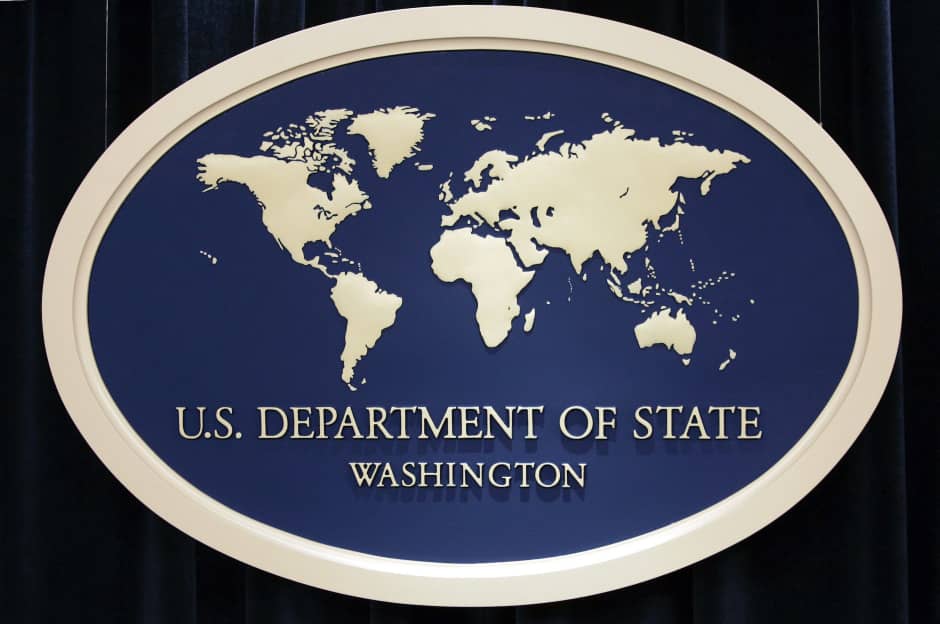Senior U.S. District Judge Paul Friedman’s decision blocks the Trump administration from stripping the collective bargaining rights of nearly three-quarters of all federal workers.
A federal judge declined to freeze a preliminary injunction that bars President Donald Trump from revoking the collective bargaining rights of foreign service members on Tuesday, a rare dismissal as the government appeals the injunction to the D.C. Circuit.
In a seven-page opinion, Senior U.S. District Judge Paul Friedman denied the Trump administration’s request to pause his injunction, which blocks the use of a national security exemption to summarily terminate federal employees. While he acknowledged the government may face “some degree” of harm, Friedman found little merit in its claim that the injunction interferes with efforts to “redirect their employees to mission-oriented work that advances national security.”
“This court notes, however, that the defendants have not shown a particularly high degree of irreparable harm,” the Bill Clinton appointee wrote. “After all, the court’s preliminary injunction order merely maintains the status quo by preserving the collective bargaining rights for a significant number of federal employees, as prescribed by Congress nearly fifty years ago.”
Judge Friedman granted the American Foreign Service Association’s request for a preliminary injunction on May 14, blocking parts of Trump’s executive order that would have stripped labor protections from roughly two-thirds of federal workers.
The order, issued March 27, exempted 18 federal agencies and 25 subagencies from the Civil Service Reform Act, prompting lawsuits from the foreign service union and the National Treasury Employees Union. The foreign service union filed its challenge on April 7.
The foreign service association, representing about 18,000 employees across the State Department, USAID, and U.S. Agency for Global Media, argued the order was retaliation for past lawsuits challenging Trump’s efforts to dismantle agencies like Voice of America and Radio Free Europe.
It pointed out that the U.S. Customs and Border Protection, whose union endorsed Trump in the 2024 election, was one of the few governmental entities not covered by the executive order, further proof of its retaliatory nature, the union said.
The White House said in a fact sheet that a key part of the executive order was meant to target federal unions who have “declared war on President Trump’s agenda,” and end “union obstruction.”
In its stay motion, the Justice Department cited the D.C. Circuit’s decision in National Treasury Employees Union v. Trump, in which a three-judge panel stayed Friedman’s near identical preliminary injunction barring enforcement of Trump’s executive order.
There, the panel, which ruled 2-1, accepted the administration’s argument that a stay was necessary to prevent irreparable harm to the president’s “national-security prerogatives.”
The Justice Department argued that the D.C. Circuit rightfully found that Friedman’s injunction in that case had tied the government’s hands and transferred control “from the executive to the judiciary” over national security, where the president usually has “unique responsibility.”
“Further, the injunction undermines executive branch governance and irreparably undermines the president’s authority to ‘prescribe regulations for the conduct of employees in the executive branch,’” the Justice Department wrote. “That encroachment on the president’s prerogatives is especially ‘problematic’ in the national-security context, where the president must be able to act swiftly and decisively.”
While Friedman acknowledged the government would face some harm from the injunction, he found it failed on the remaining three stay factors: irreparable harm, likelihood of success, and harm to the opposing party.
He noted the foreign service union began suffering injuries even before the injunction, citing an 86% loss in operating revenue as the administration moved to terminate State Department and USAID employees.
Unlike the treasury employee union case, Friedman said, the foreign service union didn’t benefit from a government FAQ instructing agencies to preserve collective bargaining agreements during litigation.
The D.C. Circuit relied on that document to find that any harm to the Treasury employee union was speculative, but that document does not apply to the Foreign Service Union’s case.
Further, Friedman found the Trump administration’s assertion that a stay was necessary to preserve the president’s autonomy “dubious,” noting that the public is similarly interested in protecting federal workers’ bargaining rights to ensure “an effective and efficient government.”

